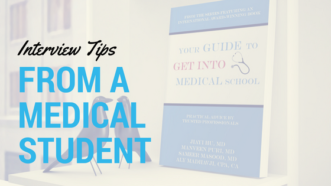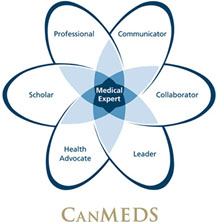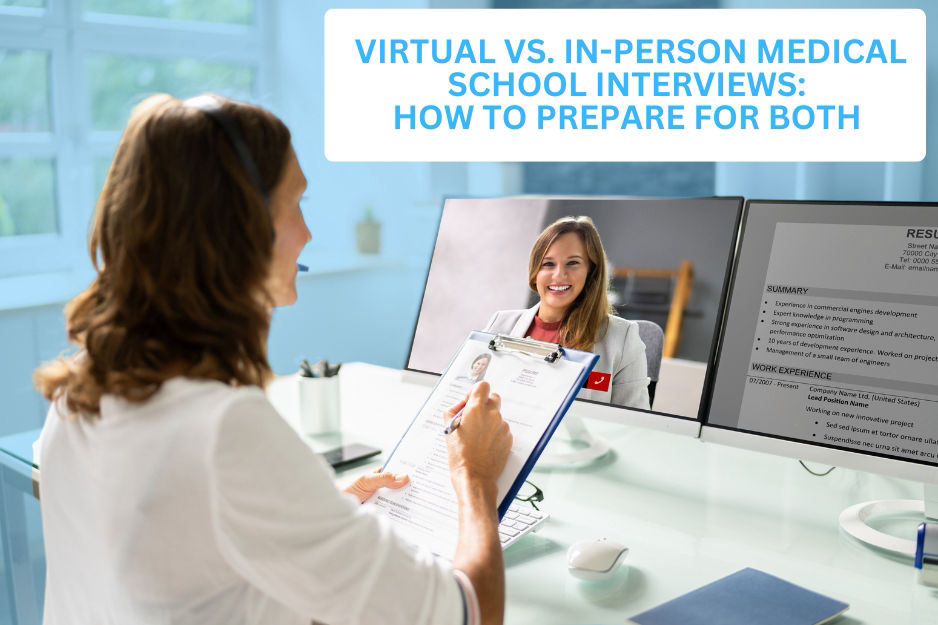
Medical School Interview Tips from a Medical Student
Getting an interview is itself is an accomplishment. Now that you have gotten to this final and the most important, stage, how can you seize the opportunity and reach closer to becoming a doctor?
Twin traps of under and over-preparation
When I was asking around for tips and advice to prepare for my medical school interviews a few years ago, there was one response I always got: be yourself. This can be frustrating advice to an interviewee who wonders: “Be myself, but how?” “What if being myself is not good enough?” and “What does being myself even mean?” As candidates, we tend to long for specific strategies to maximize chances, not to go on faith.
At the time, I too did not understand what “being myself” meant, but having been on the other side as an interviewer, it is much clearer. I now realize that it is indeed important to “be yourself.”
Here are some ways you can “be yourself:”
- Understand that there are no “right responses,” only “your response.”
- Caveat: there are wrong answers, however. This is true particularly for questions/ stations testing ethics. Wrong answers are those that raise red flags. You must develop a mindset with lots of practice and answer ethical questions such that these red flags would not be a concern in the first place.
- Since there is no “right answer,” there is no point memorizing or reciting responses. Interviewers want to know you, not your ability to recite others’ responses.
- Those who give interviewers what they believe are the “correct or ideal response” will come across as robotic. In contrast, those who give answers that reveal their unique character will come across as human.
- Make it conversational.
- Maintain professionalism, but at the same time, understand that your interviewers have seen many applicants. Be interesting, be engaging, and be conversational.
- Be honest. Interviewers can tell!
Other general tips
- Make yourself marketable: What is your selling point? What makes you unique?
- Show that you are well-rounded and that you can handle the rigors of medical training (e.g. How have you demonstrated resiliency in the past?)
- Build an “example bank” of experiences that have shown you have demonstrated certain qualities of a physician. Interviews questions tend to include a significant number of behavioral questions that are based on the premise that past performance predicts future performance.
- Being able to understand various perspectives on an issue (e.g. given a medical scenario, you should be able to think from the perspectives of a patient, the patient’s family, the physician, hospital, and the healthcare system).
- Know why you want to be a doctor.
- Have you considered other careers?
- Do you know what being a doctor consists of and have you done observerships with physicians?
- Why you would like to be a doctor and not another related profession)?
Specific tips for the Multiple Mini Interview (MMI)
19
- Become comfortable with the MMI setting.
- Although over-preparing could be fatal when it comes to memorizing content, I would suggest practicing MMI stations just to get familiar with and confident in the MMI setting.
- Get diverse opinions.
- Pre-medical students are a unique subgroup of people, and getting opinions only from other candidates may bias your view. Get opinions from medical students, physicians and other health professionals if possible. Get opinions from those who have no relationship to healthcare whatsoever.
Specific tips for traditional interviews
- Know yourself.
- This is where your holistic self, your personal stories, and your brand will shine. Reflect on your experiences and think about the image that you want to portray to your interviewers.
- Make sure you know your application and have a few experiences to highlight.
- Activity lists, supplementary essays, research projects, etc.
- Research the school and the program.
- You should already know why the program should want you, but why do you want them? What aspect of the program appeals to you?
Topics to explore
Below are some topics worth exploring. There is no point in memorizing names and dates, but being capable of discussing the following subjects may come in handy:
- The healthcare system and different models in other parts of the world
- Ethical principles guiding medical practice
- Know ethics! If you never took a medical ethics course, consider reading Doing Right by Philip C. Hebert. 20 It is important to understand and recognize the main ethical principles guiding medicine and to apply them during your MMI as necessary.
- Review the Hippocratic Oath 21 – the modern version is still very much relevant.
- Top global health issues and role of the World Health Organization (WHO)
- Currently relevant controversial issues in medicine
- Basic law governing medical practice
- Different specialties in medicine
Know the medical curriculum and physician competencies
Medical schools orient their curricula based on standards that national medical colleges set for their doctors. For the Canadian system, this standard is the “CanMEDS” model 22. In other words, schools want candidates with demonstrated potential in each of the CanMEDS competencies. Review them and think about how you can show your potential in each (Hint: how have your experiences prepared you for those roles? What leadership roles have you taken? How have you enhanced your ability to communicate effectively? Do you have research skills, academic scholarships, or other experiences that pushed you as a scholar?)
In 2015, the role “manager” has changed to “leader”. This shows the increasing demand for leadership skills amongst Canadian physicians.

19 McMaster Medical School: Admissions manual for interviewers.
20 Philip C. Herbert (2014). Doing Right: A Practical Guide to Ethics for Medical Trainees and Physicians. Third Edition. Oxford University Press.
21 Johns Hopkin’s University.
22 Royal College of Physicians and Surgeons of Canada. CanMEDs Framework.
To view free interview videos on the different interview formats and the strategies to acing them, visit MD Consultants – Resources.





